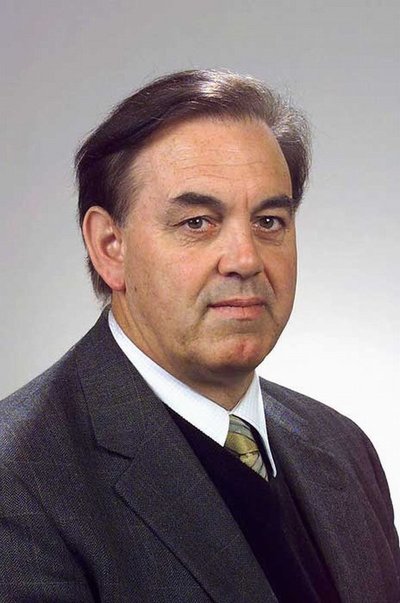April 10, 2001
Software and IT executive joins UW’s Cell Systems Initiative
Joseph Duncan, who has held top management positions at Oracle Corp. and Borland International, has joined the University of Washington School of Medicine’s Cell Systems Initiative (CSI) as chief of operations and information technology.
CSI expects to draw on the technical and management skills that Duncan has built over many years with pioneering high-tech companies, says Dr. Bob Franza, director of CSI and a research professor in the UWâs departments of bioengineering and molecular biotechnology.
CSI expects to spin off several private companies and technologies ö an area in which Duncan has considerable experience. “Joe Duncan has been involved in building many significant businesses and products. We value his expertise as we continue to improve research technologies,” Franza said.
Duncan says he values the entrepreneurial spirit at CSI. Its private partners already include Immunex Corp. and Isis Pharmaceuticals, Inc. “CSI is well poised to be an effective incubator of new technologies. The UW and individual private companies are already collaborating on a variety of initiatives. Different spin-offs will be started as part of those initiatives, and I look forward to being involved,” Duncan said.
As an Oracle senior vice president in the products division from 1995 to 1997, Duncan reported directly to CEO Larry Ellison. Duncan managed 250 people, and served on Oracleâs product review committee, a group of senior Oracle executives who review all product proposals and define company product direction. Before that, Duncan was Oracleâs vice president of application development tools.
From 1990 to 1993 at Borland, Duncan was director of Paradox R&D — named after the database software — Borlandâs most successful revenue-producing division.
Duncan has also held key information technology and management roles at Critical Path, Lotus Development and Wang Laboratories. He was chief information officer at Critical Path as it grew from 700,000 hosted users to 30 million subscribers.
CSI is a research and educational program whose mission is to understand the dynamic information systems in cells. In part, it will build on the success of the Human Genome Project. By understanding disease processes at the cellular level, CSI will be able to capitalize on genomic information and incorporate this information into novel and precise drug discovery processes, according to Franza.
CSI includes industry and academic participants in collaborative research studies, focused on integrating genomic and functional information, powerful bioinformatics and novel experimental techniques to expand understanding of human disease.
Among CSIâs goals are research platforms and tools that will allow researchers to model the incredible complexity of the cell. “People studying biology today really donât have the tools they need to effectively model what they experience as they do their tests. They donât have the tools they need to seamlessly see the interrelationships between all their data as well as data from other researchers,” Duncan said.
CSI will develop visual information tools that work like the equipment that The Boeing Co. uses to design and model aircraft in 3-D, but are able to model the dynamic information systems of cells. Throughout his career, Duncan says, he has tried to create software that is intuitive and helpful ö and as easy as possible for people to figure out and use.
This sort of research technology should have applications in many other sciences, as well as in education, he said. Programs that model natural processes would be exciting and challenging for young people.
“We donât make enough programs that work as well as computer games,” Duncan said.
He envisions programs that would allow scientists and students to watch animated sequences of, for example, blood cell walls ö with complete integrity to the biology of the natural processes and the ability to change the model to see how cell behavior is affected.
CSI involves scientists from many UW departments in the School of Medicine and College of Engineering, including bioengineering, aerospace engineering, electrical engineering, computer science and engineering, and materials science and engineering.



